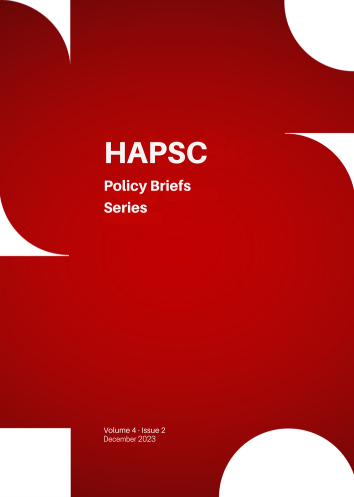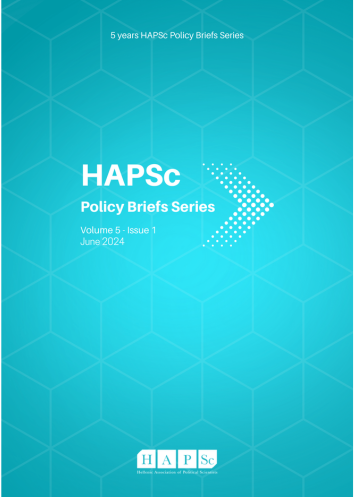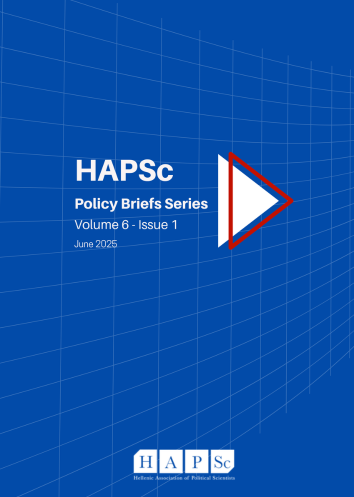The Absence of a Rationalized Migration Data Policy in Greece and the Discontinuity of Greek Migration Policy: A Glance at the First Results of the PreMiGro Project

Abstract
The aim of this paper is to present the first findings of a funded project (PreMiGro) that concerns the development of a start-up pilot prediction model of short and long-term migration flows in Greece using machine-learning tools. During the first phase of the project, which focused on the examination of data regarding historical number of immigrants to Greece associated with country of origin and its political status for the period 1990-2022 through a range of primary and secondary sources, a vital finding surfaced. The discontinuity of the Greek migration policy seems to be related, among others, to the absence of a consistent data policy on migration, ever since Greece became a host country of migrants in the 1990s up to 2022 when Greece had already witnessed major transformations in its migration policy domain. A first reading of PreMiGro’s initial research outcomes sheds some light on the peculiarity of the Greek migration policy. Indeed, the securitization of migration in Greece, the (at times negative) perception of migrants and refugees from parts of the Greek Society and Public Sphere and the fragmented Greek migration policy per se, could be explained through the lens of the absence of a rationalized migration data policy in Greece, among other things.
Article Details
- How to Cite
-
Papadakis, N., Taroudakis, M., Dimari, G., Smaragdakis, C., & Kosmadakis, N. (2023). The Absence of a Rationalized Migration Data Policy in Greece and the Discontinuity of Greek Migration Policy: A Glance at the First Results of the PreMiGro Project. HAPSc Policy Briefs Series, 4(2), 45–54. https://doi.org/10.12681/hapscpbs.36660
- Section
- Articles

This work is licensed under a Creative Commons Attribution 4.0 International License.
Authors retain copyright and grant the journal right of first publication with the work simultaneously licensed under a Creative Commons Attribution License that allows others to share the work with an acknowledgement of the work's authorship and initial publication in this journal.




